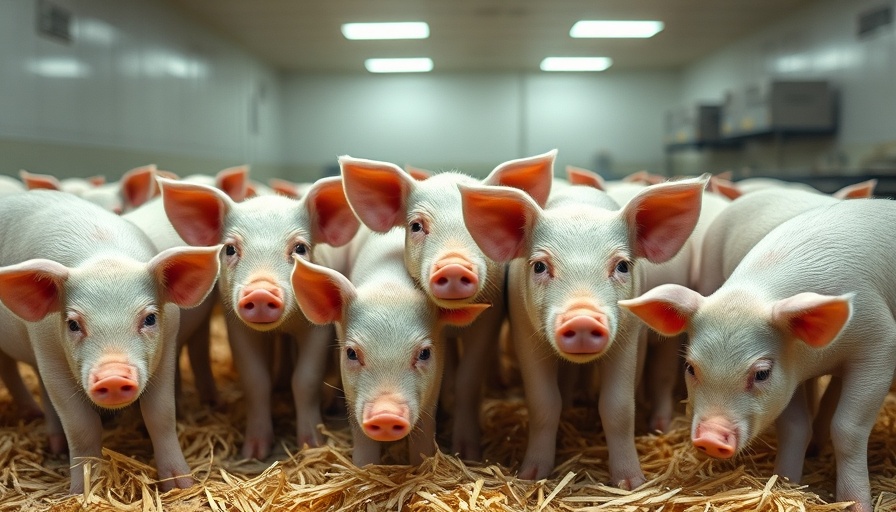
Revolutionizing Vaccine Development for African Swine Fever
In a significant advancement for global livestock health, researchers from the J. Craig Venter Institute (JCVI), Friedrich-Loeffler-Institut (FLI), and International Livestock Research Institute (ILRI) have introduced a groundbreaking reverse genetics system designed specifically for the African swine fever virus (ASFV). This system is expected to play a crucial role in vaccine development and in understanding the biology and pathogenesis of a virus that threatens swine populations worldwide.
African swine fever, a highly contagious and deadly disease affecting both domestic and wild pigs, poses a severe risk to the livestock industry, particularly in regions such as Africa, Europe, and Asia. A recent economic analysis has revealed that if ASFV were to enter the United States, it could lead to losses exceeding $50 billion within a decade. This emphasizes the urgent need for effective control measures to mitigate the widespread impact of the disease.
Understanding the Mechanism: How Reverse Genetics Works
The novel reverse genetics system enables scientists to rapidly construct genetically modified strains of ASFV through a sophisticated process. Initially, researchers create synthetic DNA representations of the virus's genetic material. By using yeast's natural recombination machinery, they can manipulate fragments of ASFV to assemble complete genomes.
Once synthesized, these genomes are transferred into E. coli, allowing for increased production of viral material. The process culminates in transfecting the synthetic DNA into mammalian cells, which are then infected with a specially modified version of ASFV that cannot replicate independently. This self-helper virus ensures that the necessary components for viral reproduction are available without enabling uncontrolled replication, ultimately leading to the production of live recombinant viruses.
The Benefits Beyond ASFV: Implications for Other Viral Threats
One of the most compelling aspects of this research, as noted by Professor Sanjay Vashee from JCVI, is that the tools and techniques developed through this process extend beyond ASFV. The reverse genetics system serves as a framework that can be adapted to tackle other emerging viral threats. This cross-application potential highlights the promise that modern biotechnology holds in addressing global health challenges.
A Bright Horizon for the Global Swine Industry
The implications of this research are enormous; not only does it provide a critical means to develop effective vaccines against ASFV, but it also aids in fortifying the resilience of the global swine industry amidst rising threats from various viral outbreaks. As nations grapple with the economic consequences of livestock diseases, advances like these offer a beacon of hope for farmers and agricultural economies alike.
By unlocking new pathways in vaccine development, researchers are ultimately paving the way to protect livestock, ensure food security, and foster economic stability across the globe. Collaborative efforts among various research institutions signify a united front in the fight against viral diseases, showcasing the power of science to address pressing global issues.
 Add Row
Add Row  Add
Add 




Write A Comment